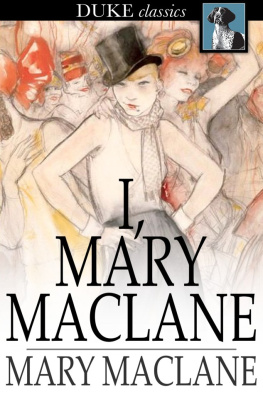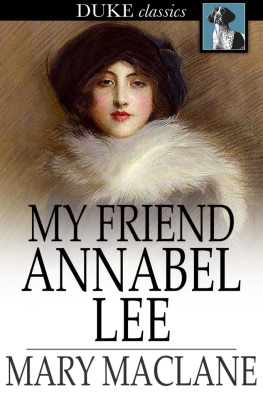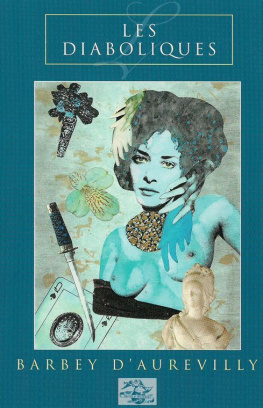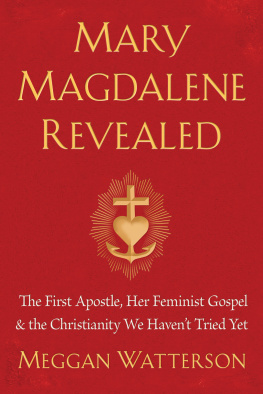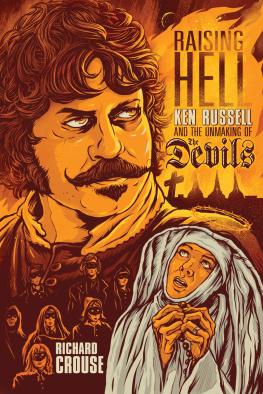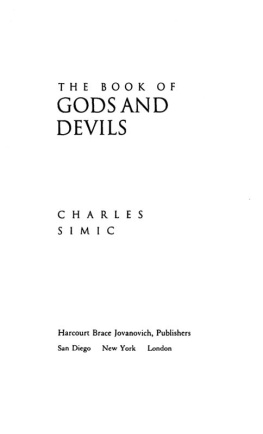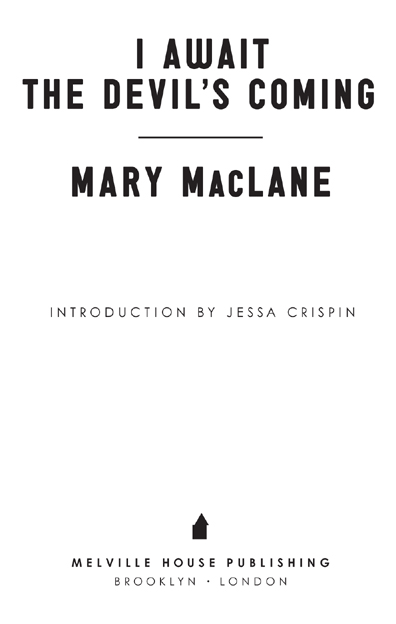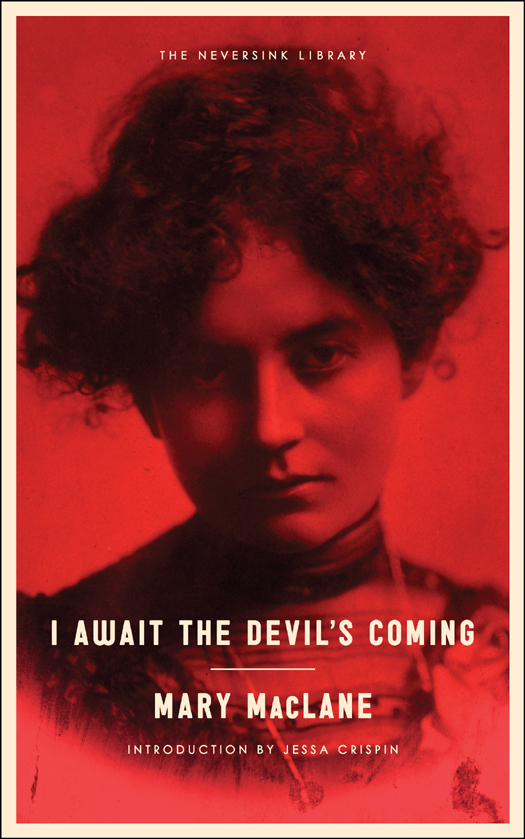
PRAISE FOR MARY M AC LANE
I know of no other writer who can play upon words so magically. Mary MacLane is one of the few who actually knows how to write English. She senses the infinite resilience, the drunken exuberance, the magnificent power & delicacy of the language.
H.L . MENCKEN
A girl wonder.
HARPERS MAGAZINE
A pioneering newswoman and later a silent-screen star, considered the veritable spirit of the iconoclastic Twenties.
BOSTON GLOBE
Her first book was the first of the confessional diaries ever written in this country, and it was a sensation.
NEW YORK TIMES
The first of the self-expressionists, and also the first of the Flappers.
CHICAGOAN
One of the most fascinatingly self-involved personalities of the 20th century
THE AGE
Mary MacLane comes off the page quivering with life Moving.
THE TIMES ( LONDON )
She was an extraordinarily gifted girl She had a natural gift for crisp and concise expression, a keen, undisciplined intelligence and the emotional sensibility of a true artist.
NEW YORK TRIBUNE
A pioneering feminist A sensation.
FEMINIST
BOOKSTORE NEWS
I AWAIT THE DEVILS COMING

MARY M AC LANE (18811929) was born in Winnipeg, Canada, but soon after her family moved to rural Minnesota, then to the frontier mining town of Butte, Montana. MacLane hated the isolation and began writing for her school newspaper, and keeping a diary about what she couldnt write in the newspaper, such as her discovery of her bisexuality. It would become her first book, I Await the Devils Coming, published in 1902 when she was nineteen (under the more sedate title The Story of Mary MacLane, a change her publisher made without consulting MacLane). The book was a sensation, selling 100,000 copies in its first month alone and enabling her to leave Montana. It also led to widespread outrage, and MacLane quickly became a household name, writing newspaper columns and going on speaking tours. She moved first to Chicago, then to Rockland, Massachusetts, then to Greenwich Village, New York. By her own account she lived a decadent life during these years, and although she published another memoir, I, Mary MacLane, and wrote and starred in a now-lost autobiographical silent film, Men Who Have Made Love to Me, her lifestyle took its toll. MacLane was found dead in a Chicago hotel room in 1929, of causes now unknown. Her works fell almost immediately into obscurity.
JESSA CRISPIN is a critic and the editor-in-chief of Bookslut, a webzine founded in 2002. She is a book critic for NPR and contributor to PBSs Need to Know, and has written for the Washington Post, the Chicago Sun-Times, the Guardian and the Globe and Mail.
THE NEVER SINK LIBRARY
I was by no means the only reader of books on board the Neversink. Several other sailors were diligent readers, though their studies did not lie in the way of belles-lettres. Their favourite authors were such as you may find at the book-stalls around Fulton Market; they were slightly physiological in their nature. My book experiences on board of the frigate proved an example of a fact which every book-lover must have experienced before me, namely, that though public libraries have an imposing air, and doubtless contain invaluable volumes, yet, somehow, the books that prove most agreeable, grateful, and companionable, are those we pick up by chance here and there; those which seem put into our hands by Providence; those which pretend to little, but abound in much.
HERMAN MELVILLE , WHITE JACKET
I AWAIT THE DEVIL S COMING
First published as The Story of Mary MacLane, Herbert S.
Stone & Company, Chicago, 1902
This edition 2013 Melville House
Introduction 2013 Jessa Crispin
Design by Christopher King
Cover photograph courtesy of the Newberry Library, Chicago;
Call no. MMS Stone & Kimball, #1210
First Melville House printing: February 2013
Melville House Publishing
145 Plymouth Street
Brooklyn, NY 11201
www.mhpbooks.com
eISBN: 978-1-61219-195-9
A catalog record for this book is available from the Library of Congress.
v3.1
Contents
INTRODUCTION
BY JESSA CRISPIN
What are we to do with the ambition of young Midwestern girls? Its the kind of stuff that has toppled governments, redrawn borders, and decimated cities when it exists in dashing young men sitting astride horses. But it seems like a tease, a cosmic joke, to burden a girl from Montana with such a useless force.
Mary MacLane, as she is soon to tell you, was born in Winnipeg in 1881. And rather than being blessed with the natural cooperative qualities that it takes for a woman to survive on the late nineteenth-century prairie, she was sent into this world with the ambition and the mad genius of a Napoleon. Because prairie women are not demure or feminine. They are rock solid and weathered. But to live out there, exposed to the elements and trying to wrestle a life off or out of the land, takes a communal spirit. It takes sisterhood. One day the land will turn on you, as is its way, and the only thing that will keep you alive will be your fellow woman.
Poor Mary was not born an approachable young woman. She was meant to lead the rabble, not to co-exist within it. Ask her for a cup of sugar and youll find yourself mysteriously spitting up pins. She was the kind of headstrong, caustic little thing that was branded a witch just a handful of centuries earlier.
And so what to do? The standard ways of expressing that sort of energybomb throwing, revolutions, bloody coupswere not available to her. What was she to do with her genius?
She decided to write a memoir. Of course. At nineteen she picked up her pen and introduced herself to the world. She did not only reveal her weaknesses and faults, she reveled in them. She luxuriated in them. She took her revenge on her family, her community, and her God, deciding that if she was to be cast out, she wouldnt cling to the gates, sobbing and promising reformation. Like all good outcasts, she had her bags packed when they came to ostracize her. And once past the city gates, she just kept on going.
And it was the girls who responded to her wild call. Girls burdened with ambition, with vanity, with pride, moving through a world that saw such assets as pointless in the feminine creatures. An army of girls, desperate to be led off into battle somewhere. Anywhere. Mary MacLane was a hit, and it was the girls who made her so. Her book, this book, was a bestseller, not only a bestseller but a sensation and an event, and it gave her access to a wholly different kind of life. An urban life. A wild, singular life of booze, of men, of the stage, of fame and fortune. The Devil has his pleasures, and after pledging her devotion to him in this memoir, she sampled them all.


